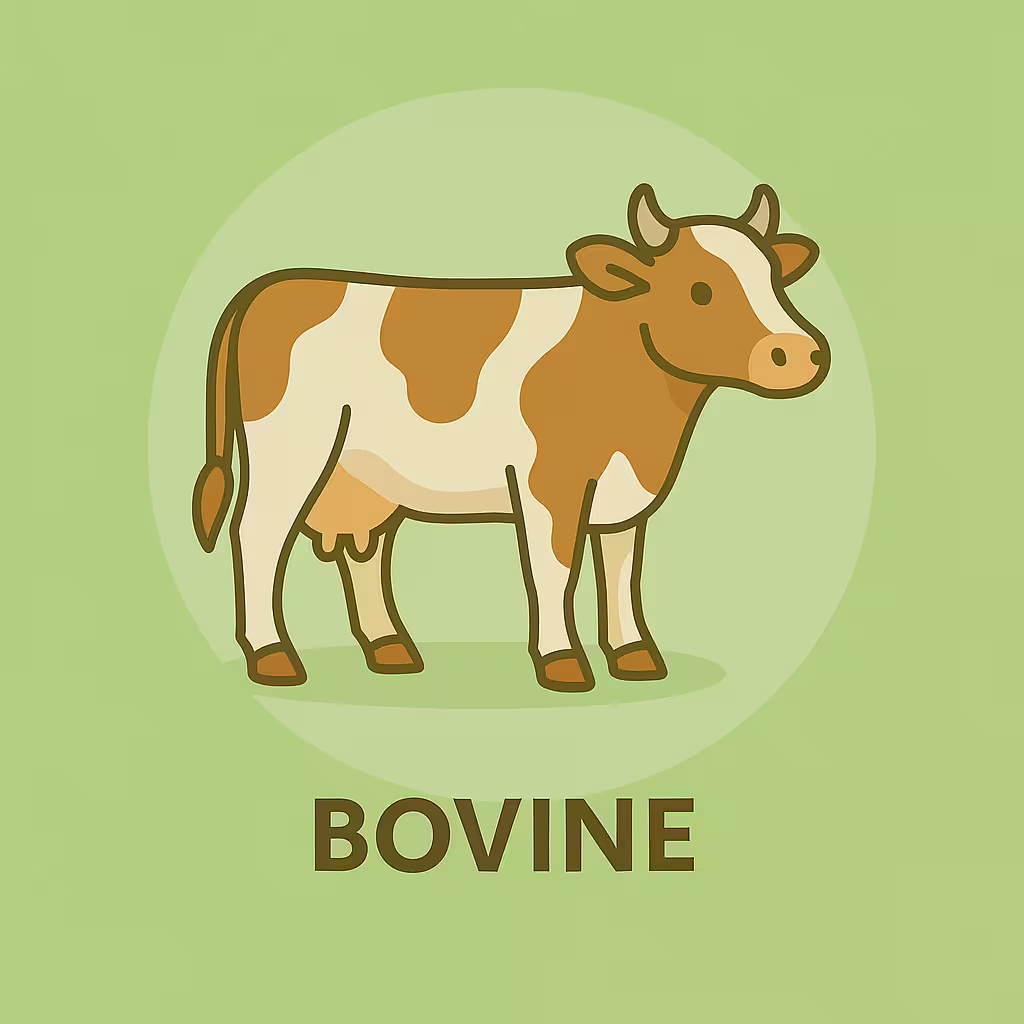Bovine (or beef) gelatin comes from cow parts, not pig.
However, whether it is halal or not depends on whether it was slaughtered in the Islamic (halal) manner. If not, then according to the Hanafi school of thought it is not permissible (haram) to consume.
Introduction
Bovine gelatin is a common ingredient in many foods and medicines – from gummy candies and marshmallows to capsules and desserts.
For Muslims striving to eat halal, gelatin raises concerns because it’s often sourced from animal by-products. In particular, bovine gelatin (gelatin derived from cattle) is widely used.
So, is bovine gelatin halal according to the Hanafi school of thought?
In short: If the gelatin comes from a cow that was not slaughtered in the Islamic (halal) manner, it is not permissible (haram) to consume in Hanafi fiqh.
This article will explain the reasoning behind this ruling, based on classical Hanafi principles and trusted scholarly guidance, and offer practical tips for identifying halal gelatin sources.
What is Bovine Gelatin?
Gelatin is a gelling agent made by boiling the collagen found in animal skin, bones, and connective tissues. Bovine means relating to cows or cattle – so bovine gelatin is simply gelatin sourced from cow parts.
Manufacturers extract collagen from cattle hides and bones (or other animals like pigs) and process it into gelatin powder. The resulting gelatin is used to give foods a chewy or gel-like texture.
From an Islamic perspective, the source of the gelatin is crucial.
Gelatin itself has no taste or color, and in theory it’s “just a protein.” However, if that protein is extracted from an animal that wasn’t slaughtered according to Islamic law, a Muslim must consider whether it remains impure or not. This is why bovine gelatin’s halal status is under scrutiny – it depends on how the source cow was slaughtered (or if it was slaughtered at all).
Why Halal Slaughter Matters in Hanafi Fiqh
In the Hanafi school (madhhab), the method of slaughter for permissible animals dramatically affects their purity and permissibility.
A cow is a halal animal (lawful to eat) in principle, but only if it’s slaughtered in the proper Islamic way. If a cow dies without Islamic slaughter – whether it was killed improperly or simply not slaughtered at all (carrion) – then its meat becomes haram to eat and is considered impure (najis). This ruling isn’t just about eating a steak; it extends to all parts of the unslaughtered carcass, including the bones, skin, and any products derived from them.
Gelatin made from a cow that wasn’t slaughtered Islamically falls under this rule. Even though the cow itself is a halal species, an improperly slaughtered cow is treated as maytah (carrion). Consuming any product from carrion is forbidden in Islam.
Thus, Hanafi scholars affirm that if bovine gelatin comes from a non-halal slaughtered cow, it is impure and impermissible to consume – effectively just as impermissible as porcine (pig) gelatin Source.
To put it simply: the Hanafi stance is that the slaughter method matters. A halal animal doesn’t automatically yield halal gelatin; it must have been slaughtered correctly for its parts to be permissible.
The Hanafi Ruling on Bovine Gelatin: Halal or Haram?
According to classical Hanafi jurisprudence and respected fatwa authorities, the permissibility of gelatin hinges on its source:
- Gelatin from Halal-Slaughtered Animals: If the gelatin is extracted from a cow (or other animal) that was slaughtered in the proper Islamic manner, then it is halal to use and consume. For example, gelatin made from halal beef or certified halal bovine sources is permissible. In this case, the animal was lawful and slaughtered correctly, so its by-products remain lawful as well.
- Gelatin from Unsacrificed or Haram Animals: If the gelatin is manufactured from pork or from a halal animal (like a cow) that was not slaughtered according to Islamic law, then it is haram (forbidden) to consume. In the Hanafi view, such gelatin is treated just like the impure source it came from.
- Gelatin from Fish or Vegetarian Sources: Gelatin alternatives exist that are inherently halal. Fish gelatin (extracted from fish skins or bones) is permissible in all schools, including Hanafi, because fish are halal to eat and require no ritual slaughter. Plant-based “gelatin” (such as agar-agar or pectin derived from seaweed and fruits) is also completely halal. If a product’s ingredient list specifies fish gelatin or vegetarian gelatin, a Hanafi Muslim can consume it with confidence that it contains no impure substance.
- Unknown or Doubtful Gelatin Sources: Often, food labels just say “gelatin” without specifying the source. In non-Muslim countries, such gelatin is usually from pork or non-halal beef. Hanafi scholars advise caution in such cases: if you cannot verify that the gelatin comes from a halal-slaughtered source, it should be treated as impermissible by default. Unless a product is certified halal or specifies a permissible source, a practicing Hanafi would be expected to avoid it.
The Concept of Transformation (Istihālah) and Gelatin
One reason some people ask about gelatin’s permissibility is the idea of istihālah, or complete transformation. Islamic law holds that if an impure substance undergoes a fundamental change in its nature, it can become pure. A classic example is wine turning into vinegar naturally – the resulting vinegar is halal despite its impure origin, because its essence and properties have completely changed.
Does this apply to gelatin? Many Hanafi scholars say no in the case of conventional gelatin processing. They argue that the conversion of animal collagen into gelatin, while a significant change, is not a complete metamorphosis of the substance’s essence. The end product is still essentially a denatured protein from the animal, not an entirely new substance. As mentioned earlier, leading Hanafi authorities have explicitly ruled that gelatin’s manufacturing change is “not sufficient” to purify impure ingredients.
Thus, the principle of istihālah does not render non-halal gelatin halal in the Hanafi school’s mainstream view.
Practical Tips: Avoiding Haram Gelatin and Finding Halal Alternatives
For Muslims adhering to the Hanafi ruling, here are some practical tips to navigate gelatin in foods and products:
- Read Labels and Certifications: Always check ingredient lists for the word “gelatin.” If a product is halal-certified, that usually means any gelatin in it comes from a halal source (or is plant-based).
- Prefer Halal or Vegetable Gelatin: These days, many companies produce halal bovine gelatin (from properly slaughtered cows) for the Muslim market. There are also plant-based gelling agents (like agar, pectin, or carrageenan) used in place of gelatin. Opt for products that explicitly use these, or those labeled “suitable for vegetarians,” which indicate no animal gelatin is used.
- Fish Gelatin in Supplements: If you need to take vitamins or medications in capsule form, look for those made with fish gelatin or cellulose capsules. Fish gelatin is an excellent halal substitute – since all fish are halal in Hanafi fiqh, this type of gelatin poses no issue. Many pharmaceutical or supplement companies now specify if their gelatin is fish-based.
- When in Doubt, Leave It Out: The Prophet Muhammad ﷺ taught to avoid doubtful matters in order to guard one’s faith. If you’re unsure about the source of gelatin in a food item and cannot find clarification, it is safer in Hanafi practice to refrain.
- Medical Necessity Exceptions: What if you absolutely must consume a product with haram gelatin for health reasons? Hanafi jurists do allow exceptions in cases of genuine medical necessity. If a lifesaving medication or essential treatment contains gelatin and no halal alternative exists, it can be used as a last resort under specific conditions. These conditions include having the guidance of a trustworthy Muslim doctor and certainty that no permissible substitute is reasonably available. This exception is only for dire needs – it does not make it generally okay to eat non-halal gelatin casually, but it provides flexibility for health emergencies.
Conclusion
In conclusion, bovine gelatin is not halal in the Hanafi school if it originates from an animal that was not slaughtered according to Islamic law.
Despite the extensive processing gelatin undergoes, Hanafi authorities maintain that impure sources yield impure outcomes, and no amount of processing can change that without a true transformation of the substance’s nature.
Gelatin from pigs or unslaughtered cows therefore remains haram and impure, and observant Muslims should avoid foods containing such gelatin. The good news is that alternatives exist – halal-certified gelatin from properly slaughtered animals, fish-based gelatin, and vegetarian gelling agents make it possible to enjoy marshmallows, gummies, and medicines without compromising one’s dietary principles.
For a Hanafi Muslim, the guidance is clear: always verify your gelatin’s source. If it’s not clearly halal, assume it’s haram. Keeping one’s diet pure is part of faith, and as the Hanafi school emphasizes, that purity starts with ensuring the ingredients themselves are pure.
Bovine gelatin can be halal – but only when the cow it came from was halal to begin with. Otherwise, it’s an ingredient best left off the menu in a Hanafi household.
And Allah knows best.














.avif)
